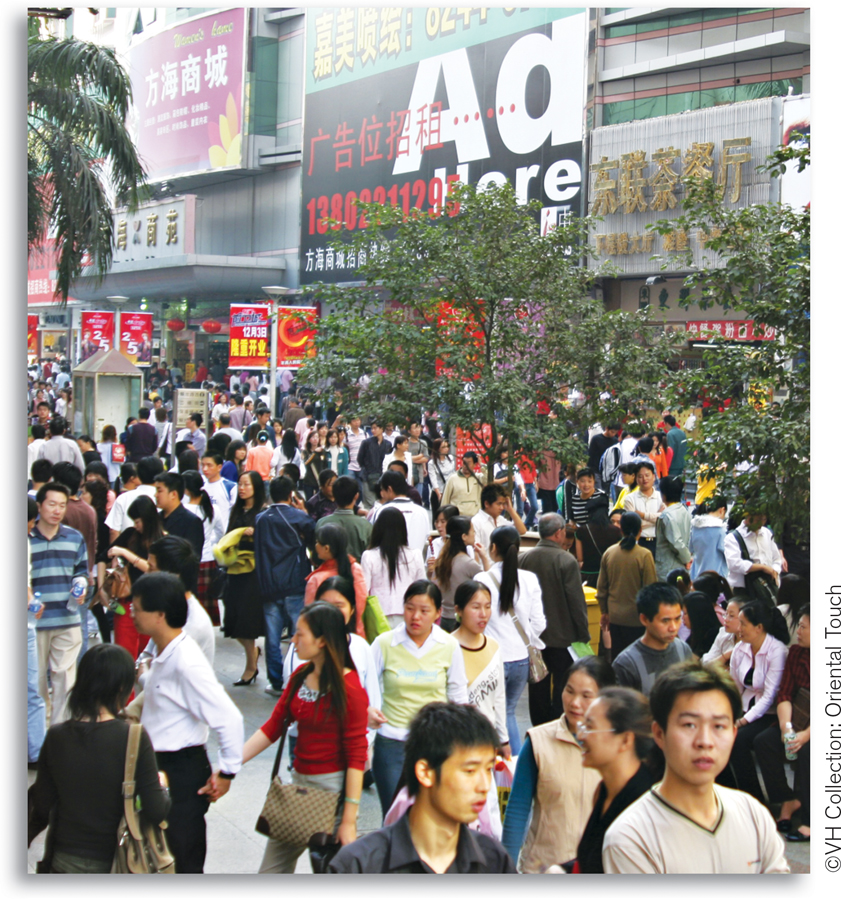A Few Words of Caution
As we’ve seen, markets are an amazingly effective way to organize economic activity. But as we’ve noted, markets can sometimes get it wrong. We first learned about this in Chapter 1 in our fifth principle of interaction: When markets don’t achieve efficiency, government intervention can improve society’s welfare.
A market or an economy is inefficient if there are missed opportunities: some people could be made better off without making other people worse off.
When markets are inefficient, there are missed opportunities—
Market failure occurs when a market fails to be efficient.
Markets can be rendered inefficient for a number of reasons. Two of the most important are a lack of property rights and inaccuracy of prices as economic signals. When a market is inefficient, we have what is known as market failure. We will examine various types of market failure in later chapters. For now, let’s review the three main ways in which markets sometimes fall short of efficiency.
Markets can fail when, in an attempt to capture more surplus, one party prevents mutually beneficial trades from occurring. This situation arises, for instance, when a market contains only a single seller of a good, known as a monopolist. In this case, the assumption we have relied on in supply and demand analysis—
that no individual buyer or seller can have a noticeable effect on the market price— is no longer valid; the monopolist can determine the market price. As we’ll see in Chapter 13, this gives rise to inefficiency as a monopolist manipulates the market price in order to increase profits, thereby preventing mutually beneficial trades from occurring. Actions of individuals sometimes have side effects on the welfare of others that markets don’t take into account. In economics, these side effects are known as externalities, and the best-
known example is pollution. We can think of the problem of pollution as a problem of incomplete property rights; for example, existing property rights don’t guarantee a right to ownership of clean air. We’ll see in Chapter 16 that pollution and other externalities also give rise to inefficiency. Markets for some goods fail because these goods, by their very nature, are unsuited for efficient management by markets. In Chapter 20, we will analyze goods that fall into this category because of problems of private information—
information about a good that some people possess but others don’t. For example, the seller of a used car that is a “lemon” may have information that is unknown to potential buyers.
In Chapter 17, we will encounter other types of goods that fall into the category of being unsuited for efficient management by markets—public goods, common resources, and artificially scarce goods. Markets for these goods fail because of problems in limiting people’s access to and consumption of the good; examples are fish in the sea and trees in the Amazonian rain forest. In these instances, markets generally fail due to incomplete property rights.
But even with these limitations, it’s remarkable how well markets work at maximizing the gains from trade.
!worldview! ECONOMICS in Action: A Great Leap—Backward
A Great Leap—

Economies in which a central planner, rather than markets, makes consumption and production decisions are known as planned economies. Russia (formerly part of the U.S.S.R.), many Eastern European countries, and several Southeast Asian countries once had planned economies, and countries such as India and Brazil once had significant parts of their economies under central planning. China still does today.
Planned economies are notorious for their inefficiency, and what is probably the most compelling example of that is the so-
Unfortunately, the plan backfired. Diverting farmers from their usual work led to a sharp fall in food production. Meanwhile, because raw materials for steel, such as coal and iron ore, were sent to ill-
Because China was a very poor country to start with, the results were catastrophic. The famine that followed is estimated to have reduced China’s population by as much as 30 million.
China has recently moved closer to a free-
Quick Review
In a market economy, markets are interrelated. When each and every market in an economy is efficient, the economy as a whole is efficient. But in the real world, some markets in a market economy will almost certainly fail to be efficient.
A system of property rights and the operation of prices as economic signals are two key factors that enable a market to be efficient. But under conditions in which property rights are incomplete or prices give inaccurate economic signals, markets can fail.
Under certain conditions, market failure occurs and the market is inefficient: gains from trade are unrealized. The three principal ways in which markets fail are the prevention of mutually beneficial transactions caused by one party’s attempt to capture more surplus, side effects that aren’t properly accounted for, and problems in the nature of the goods themselves.
4-4
Question 4.6
In some states that are rich in natural resources, such as oil, the law separates the right to above-
ground use of the land from the right to drill below ground (called “mineral rights”). Someone who owns both the above- ground rights and the mineral rights can sell the two rights separately. Explain how this division of the property rights enhances efficiency compared to a situation in which the two rights must always be sold together. Question 4.7
Suppose that in the market for used textbooks the equilibrium price is $30, but it is mistakenly announced that the equilibrium price is $300. How does this affect the efficiency of the market? Be specific.
Question 4.8
What is wrong with the following statement? “Markets are always the best way to organize economic activity. Any policies that interfere with markets reduce society’s welfare.”
Solutions appear at back of book.
StubHub Shows Up The Boss
Back in 1965, long before Ticketmaster, StubHub, and TicketsNow, legendary rock music promoter Bill Graham noticed that mass parties erupted wherever local rock groups played. Graham realized that fans would pay for the experience of the concert, in addition to paying for a recording of the music. He went on to create the business of rock concert promoting—

Wanting to maintain the aura of the 1960s that made rock concerts accessible to all their fans, many top bands choose to price their tickets below the market equilibrium level. For example, in 2012 Bruce Springsteen sold tickets at his concerts in New Jersey (his home state and home to his most ardent fans) for between $68 and $98. Tickets for Springsteen concerts could have sold for far more: economists Alan Krueger and Marie Connolly analyzed a 2002 Springsteen concert for which every ticket sold for $75 and concluded that The Boss forfeited about $4 million by not charging the market price, about $280. He likely forfeited much more surplus in 2012 as ticket prices soared to over $6,000 online at various resale sites.
So what was The Boss thinking? Cheap tickets can ensure that a concert sells out, making it a better experience for both band and audience. But it is believed that other factors are at work—
But the rise of the internet has complicated matters. Now, rather than queue for tickets at the venue, fans buy tickets online, either from a direct seller like Ticketmaster (which obtains tickets directly from the concert producer) or a reseller like StubHub or TicketsNow. Resellers (otherwise known as scalpers) can—
This practice has infuriated fans as well as bands. But resellers have cast the issue as one of the freedom to dispose of one’s ticket as one chooses. Since ticket reselling comes under the purview of state laws, the two sides have been lobbying furiously to get an advantage. And as of 2014, there is a hodgepodge of state laws governing ticket reselling. Many states, such as Alaska, impose no restrictions on reselling. In contrast, Michigan forbids ticket reselling without permission from the event’s sponsor. In general, the trend at the state level has been to allow ticket reselling as long as consumers are adequately protected against fraud.
QUESTIONS FOR THOUGHT
Question 4.9
Use the concepts of consumer surplus and producer surplus to analyze the exchange between The Boss and his fans. Draw a diagram to illustrate.
Use the concepts of consumer surplus and producer surplus to analyze the exchange between The Boss and his fans. Draw a diagram to illustrate.Question 4.10
Explain how the rise of the internet has disrupted this exchange.
Explain how the rise of the internet has disrupted this exchange.Question 4.11
Draw a diagram to show the effect of resellers on the allocation of consumer surplus and producer surplus in the market for concert tickets. What are the implications of the internet for all such exchanges?
Draw a diagram to show the effect of resellers on the allocation of consumer surplus and producer surplus in the market for concert tickets. What are the implications of the internet for all such exchanges?